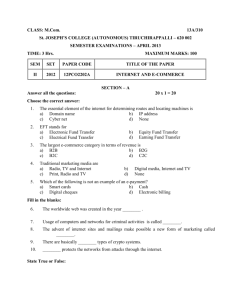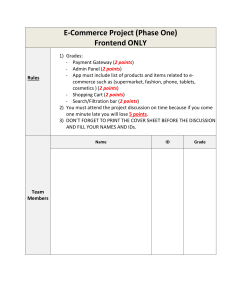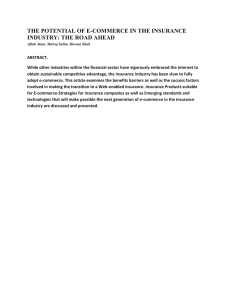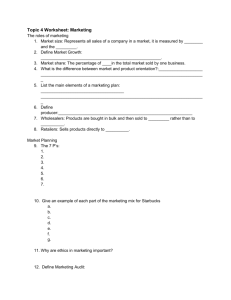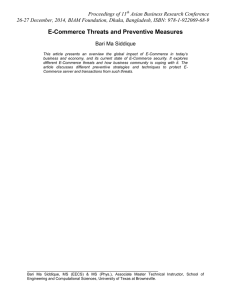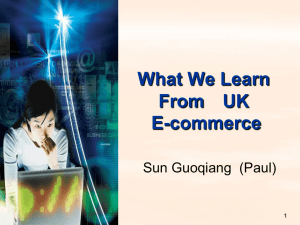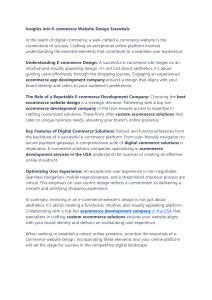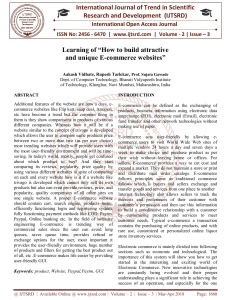Economic Impact of E-Commerce
advertisement
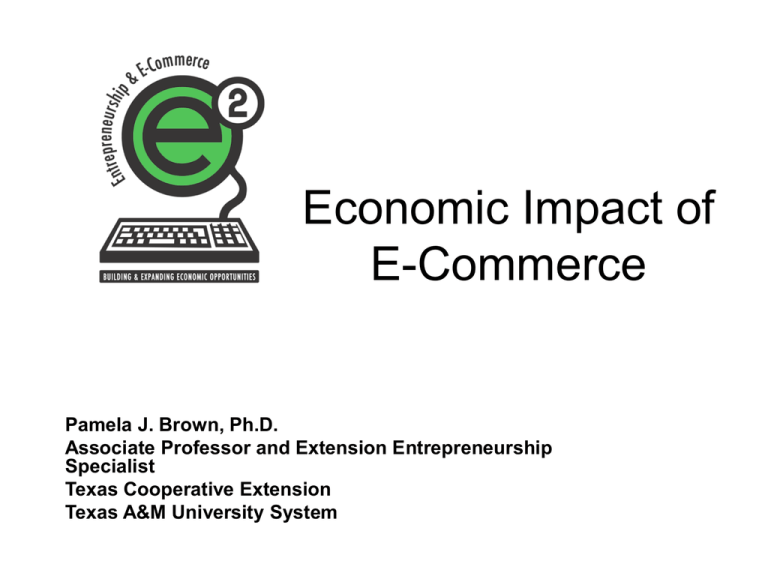
Economic Impact of E-Commerce Pamela J. Brown, Ph.D. Associate Professor and Extension Entrepreneurship Specialist Texas Cooperative Extension Texas A&M University System Economic Impact • The DIFFERENCE ecommerce makes in business and family income, community, policy, and international trade. • Ecommerce sales: Sales of goods and services where an order is placed by the buyer or price and terms of sale are negotiated over an Internet, extranet, EDI, email, or other online system. Source: U.S. Dept of Commerce News, Feb. 24, 2005 Results Demand Innovation Local Regional National Global Source: Forrester, Innovation Works, June 2004 Opportunities Facts • Globe – 445 Million • World home use ^ .51% – – – – – – – – – U.S. German United Kingdom France Australia Spain Sweden Switzerland Hong Kong Source: www.clickz.com • U.S. – 37% over 2000 – 81% of teens – 63% of adults • • • • 18-29 -80% 30-39 -74% 50-64 -60% 65+ -26% – 60% women – 66% men – Ethnicity • Whites -68% • Blacks -42% • Hispanics -60% Source:www.pewinternet.com U.S. Economic Impact • E-commerce sales 2004: • $ 69.2 Billion – 23.5% increase from 2003 – $69.2 Billion – Retail sales 2004 up 7.8% – 1.9% of total sales (2003 – 1.6%) The ‘New Normal’ American Way of Life Total U.S. online: >70 million Source: PewInternet.org, 2005 Impact on Business • • • • Conducting business Costs Profit Time • • • • Customer relations Employees Vendors Policy E-business is saving AND selling! Source: Access Minnesota, 2005 What Do E-Customers Want ? Why does it matter? Segmenting customers • • • • Young females Males 18-35 Older adults Minorities Demographics will change! Changing Demographics Broadband access will change who and how Internet is used What do e-customers want? • TRUST – Recognizable sender – Easily read content – Quick response to inquiries – Real answers to real questions – Sequence of steps – Privacy info Source: Forrester, Best and Worst of Email Customer Service, 2005 E-Loyalty: Is it real? • • • • • • Multiple retailers Price Good service Emotional connection/loyalty Relevance to customers Keep customer as central focus of e-commerce How they are buying? • • • • • • • • • 28% of online consumers do not buy online 59% search aggregate sites, not merchant sites Value the in-store experience Delivery costs Credit security Delay in purchase satisfaction No credit Seeing is believing Too complicated E-commerce class clientele say: • Learned more than I thought I would. • Left with more knowledge than I had expected. • Understand web page set up and costs. • The hands-on helps me feel confident. • I have a plan now! Community level implications Resources Education Access Examples of Success • State-specific examples What does it mean for YOU/Extension?

